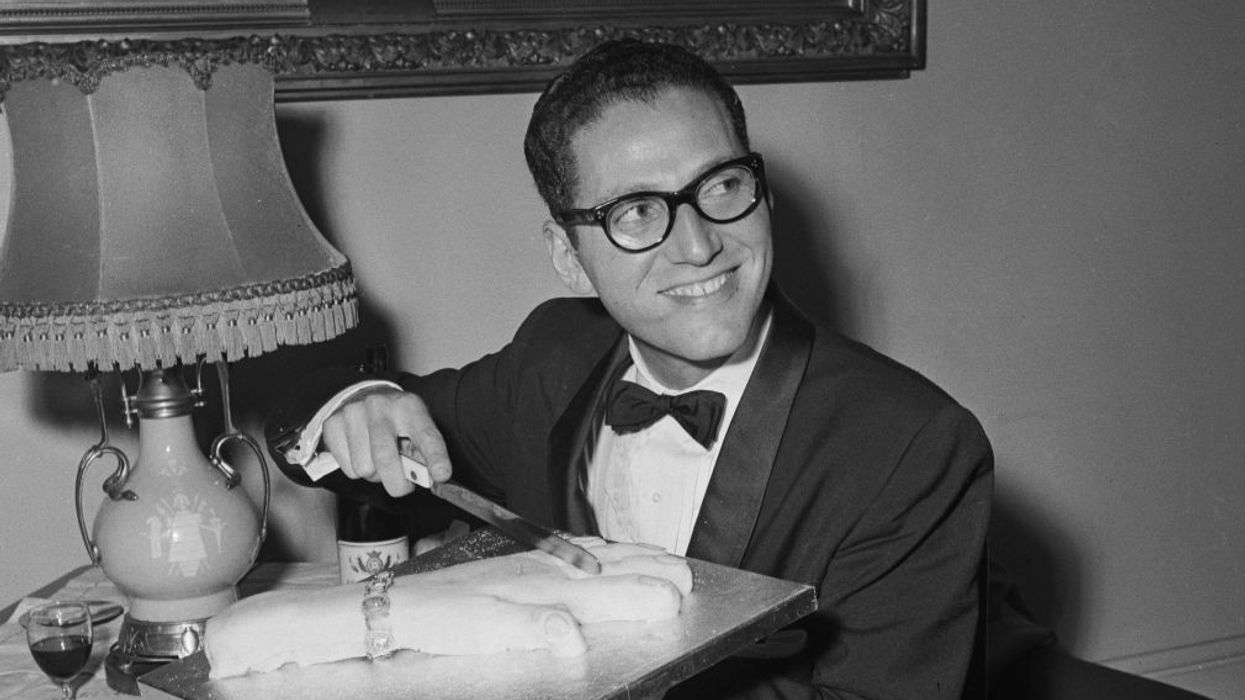Thomas Andrew Lehrer was born on April 9, 1928, in Manhattan, New York City. From a young age, he exhibited prodigious musical talent, studying classical piano and showing keen academic promise.
Lehrer graduated early from the Loomis Chaffee School in Connecticut and went on to attend Harvard University, where he majored in mathematics. He completed his bachelor’s degree at just 18 in 1946, later earning a master’s degree at Harvard and beginning—but never finishing—a PhD at Columbia University.
Career as a satirical musician
Lehrer emerged as a unique figure in American music in the 1950s and 1960s, blending sharply witty, darkly comic songs with political and social satire. His style mixed original melodies with parodies of popular musical forms, notably setting "The Elements" — a rapid-fire recitation of chemical elements — to the tune of the Gilbert and Sullivan classic "I Am the Very Model of a Modern Major-General."
Other well-known songs include "Poisoning Pigeons in the Park," "The Masochism Tango," and "I Hold Your Hand in Mine," which explored taboo and provocative subjects through humor.
Despite early commercial success—his debut album Songs by Tom Lehrer (1953) sold an estimated half a million copies via mail order—the BBC banned much of his material by 1954 for being too contentious.
Lehrer performed in clubs across New York, Los Angeles, and San Francisco, and wrote songs for political satire programs, including the US version of That Was the Week That Was in the mid-1960s. His song "We Will All Go Together When We Go" captured the tense Cold War era with dark humor about nuclear annihilation.
Later life and academic work
Though his satirical music gained a devoted following, Lehrer ultimately prioritized his academic passions. He taught mathematics and musical theatre history at prestigious institutions including Harvard, MIT, and the University of California, Santa Cruz, continuing in these educational roles into the early 2000s. In 1980, his songs saw a staged musical revue, Tomfoolery, which revived interest in his work for new generations.
In 2020, Lehrer made his musical works fully public domain, renouncing all rights and encouraging free use. He stated humorously, “So help yourselves, and don't send me any money.” He also indicated plans to eventually shut down his official website.
Legacy and influence
Lehrer’s influence extends beyond his lifetime through artists like Weird Al Yankovic, who cited Lehrer as an inspiration. His satirical lyrics, blending intellectual rigor with humor and social commentary, pioneered a distinct style of musical comedy. Though Lehrer performed only around 109 times and wrote less than 40 songs, his work remains a vital part of American cultural and political satire.
Tom Lehrer died on July 26, 2025, at his home in Cambridge, Massachusetts, at the age of 97. His death was confirmed by David Herder, a close friend. The New York Times and other outlets commemorated him as a brilliant satirist whose work blended merriment and deep societal insight. Though Lehrer shunned the performer’s spotlight, his darkly clever songs continue to resonate, reminding audiences of the power of humor in confronting difficult truths.
This tribute summarizes Tom Lehrer’s profound and multifaceted life as a mathematician, satirist, performer, and cultural influencer. His blend of biting wit, musical talent, and academic discipline has left a lasting imprint on American humor and music.
















 Balancing film buzz with a fashion moment that has taken over social mediaX/ Enter10ON
Balancing film buzz with a fashion moment that has taken over social mediaX/ Enter10ON Fans praising the energy and confidence she brings to the screenX/ TopActressEver
Fans praising the energy and confidence she brings to the screenX/ TopActressEver A viral fashion moment has once again placed her firmly in the public eyeX/ Enter10ON
A viral fashion moment has once again placed her firmly in the public eyeX/ Enter10ON Disha Patani appears to be entering a busy phaseX/ Enter10ON
Disha Patani appears to be entering a busy phaseX/ Enter10ON